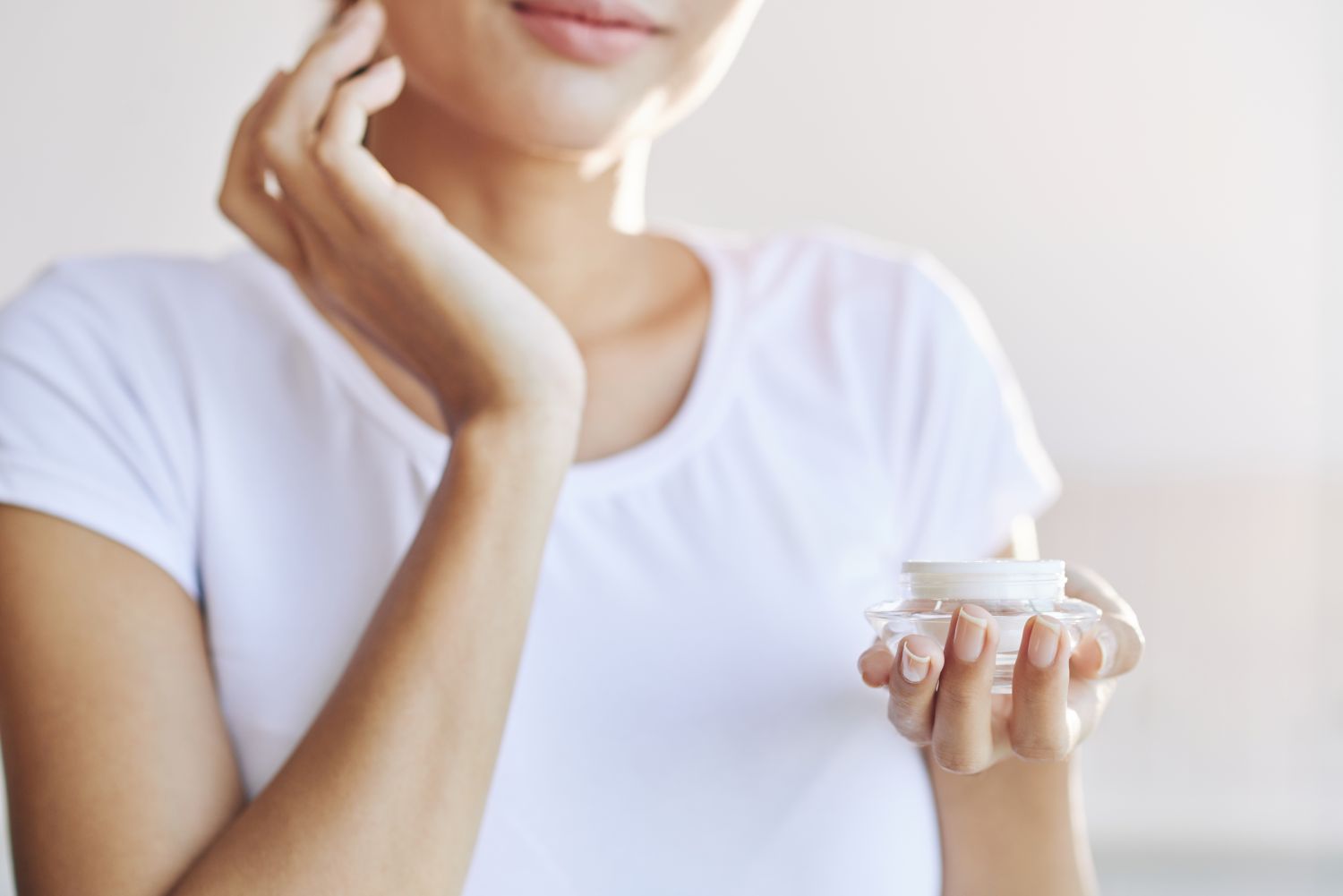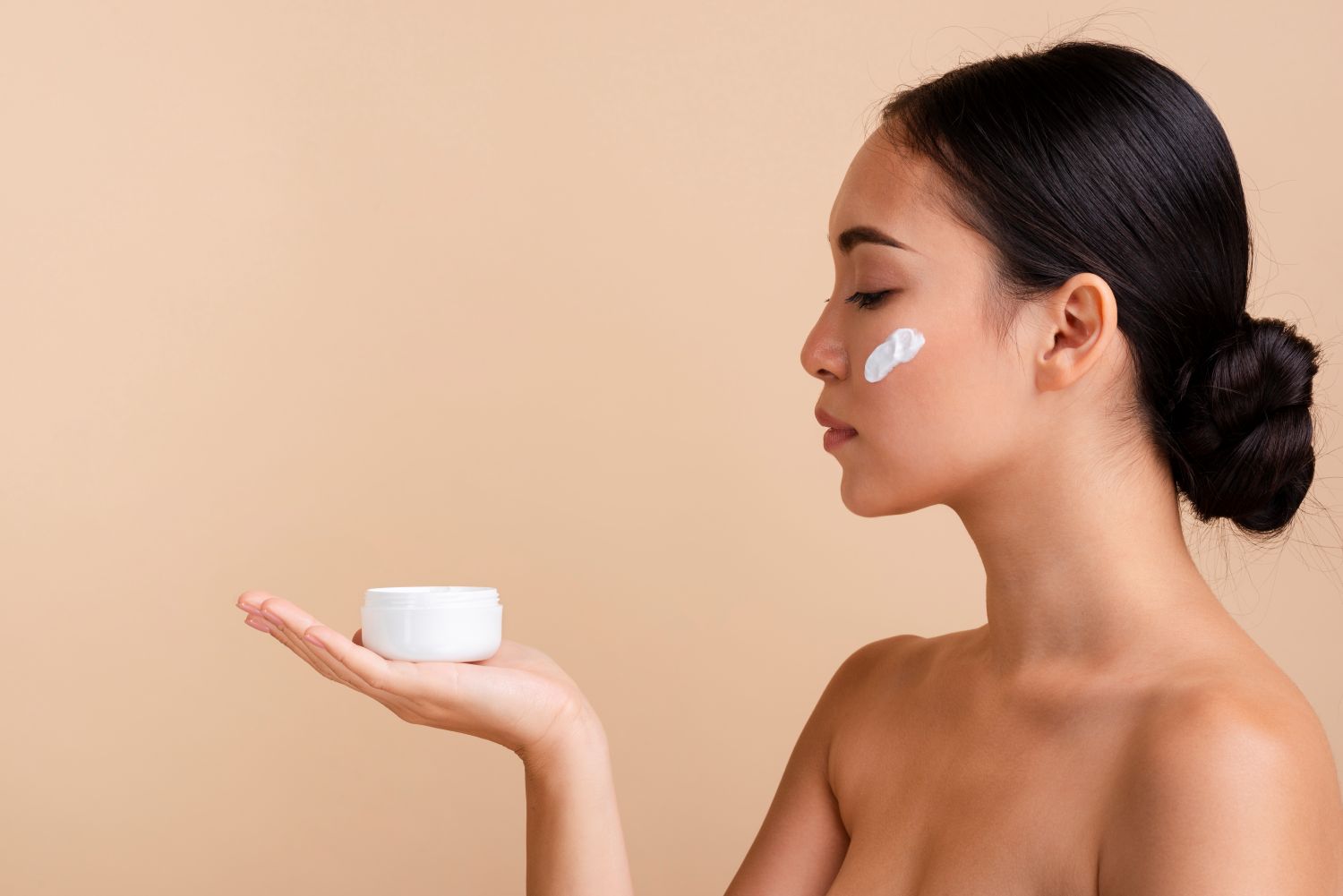Back To Top
Browse
Lotions and moisturisers make up one of the most important aspects of skincare because they help maintain the skin as a barrier as well as keeping it hydrated and soft. Here we look at the different options available and how to choose one that is right for you.
The skin is your natural barrier so it is important to take care of it. Moisturisers are key for this as they help keep your skin soft and supple by adding or trapping moisture in the skin to keep it hydrated. This can help reduce the risk of skin irritation and inflammation.
From an aesthetic perspective, using moisturisers regularly can keep your skin looking healthy. If you are concerned about signs of aging like wrinkles, keeping the skin hydrated can help reduce the visibility of this.
There are many skin care moisturizers available, each offering different levels of hydration and texture. Choosing the right one depends on your skin’s needs and lifestyle.
| Lotion |
|
| Gel |
|
| Cream |
|
| Ointment |
|
Think about what best describes your skin type, then you can pick a moisturiser that is more suitable. Or alternatively, you may benefit from using a combination of different types of moisturisers depending on the factors such as the weather or personal preferences. You should choose something that you feel you can use as a daily moisturizer to establish a routine.
| Normal skin | A lightweight lotion can help keep your skin hydrated without it feeling greasy or heavy. |
| Sensitive skin
E.g if you have eczema or psoriasis. Or your skin may just be more reactive to factors like the weather. |
It is best to pick a moisturiser without fragrances as these can irritate sensitive skin.
You might also want to look for an option labelled “hypoallergenic” or moisturisers specific for a skin condition. |
| Oily skin
You may have acne or notice that your skin gets oily easily. |
Pick a moisturiser that is oil-free or water/gel-based to avoid adding more oil to your skin which can clog your pores. |
| Dry skin
You may have eczema or notice that your skin gets dry and cracked easily. |
Choose one with intense hydration that can help you trap moisture in the skin. For example, an oil-based moisturiser may be helpful at night. |
If you have social media, you may have seen many top ingredients for skin cream moisturizer recommended for a variety of functions. It is still best to consult a healthcare professional if you want advice on what is most suitable for your skin. However, below is a general list for you to consider.
o This is good for trapping moisture to hydrate the skin.
o This can help keep the skin soft.
o This can strengthen the skin.
o This can help soothe and hydrate the skin.
o This can help give the skin deep hydration.
Some skin care moisturizers are more suited for the day or the night due to their different properties and consistencies. For example:
| Day moisturizers | Night moisturizers |
|
|
Both are essential parts of a balanced skincare routine — daytime moisturizers protect, while night creams repair and rejuvenate.
To get the most from your daily moisturizer, follow these simple steps:
Moisturisers can help with many common skin concerns:
o Regular use of moisturisers can help keep the skin hydrated and reduce irritation to the skin barrier which can reduce symptoms such as itching. It can also help manage and reduce flare-ups.
o Oil-free moisturizer cream for skin prone to acne can help keep the skin hydrated and healthy without clogging pores. This can help manage acne.
o Flaky or cracked skin can be prevented and relieved by using moisturisers.
o Keeping the skin hydrated helps maintain its soft and supple qualities which can help make the skin look plumper and younger.
Dryness often appears when the air is cold or dry, after long hot showers, or if you use harsh soaps. Skipping a daily moisturizer also makes it harder for your skin to stay hydrated.
If your skin feels tight even after applying skin care moisturizers, it may be because your product isn’t rich enough or you’re applying it on dry skin. Try using a thicker skin cream moisturizer right after washing your face or showering.
Lotions are lightweight and absorb quickly, while a moisturizer cream for skin has a denser texture and provides longer-lasting hydration — especially for dry or mature skin.
To maintain balanced hydration, apply your daily moisturizer every morning and before bedtime. Consistent use helps strengthen the skin barrier and prevent irritation.
Yes, using moisturizers for young skin helps maintain elasticity and protects the skin early on, reducing the risk of premature dryness and dullness.
Daytime moisturizers are formulated to protect your skin from sun exposure and environmental stress, while night creams provide intensive nourishment and help repair the skin overnight.
| Cookie | Duration | Description |
|---|---|---|
| cookielawinfo-checkbox-analytics | 11 months | This cookie is set by GDPR Cookie Consent plugin. The cookie is used to store the user consent for the cookies in the category "Analytics". |
| cookielawinfo-checkbox-functional | 11 months | The cookie is set by GDPR cookie consent to record the user consent for the cookies in the category "Functional". |
| cookielawinfo-checkbox-necessary | 11 months | This cookie is set by GDPR Cookie Consent plugin. The cookies is used to store the user consent for the cookies in the category "Necessary". |
| cookielawinfo-checkbox-others | 11 months | This cookie is set by GDPR Cookie Consent plugin. The cookie is used to store the user consent for the cookies in the category "Other. |
| cookielawinfo-checkbox-performance | 11 months | This cookie is set by GDPR Cookie Consent plugin. The cookie is used to store the user consent for the cookies in the category "Performance". |
| viewed_cookie_policy | 11 months | The cookie is set by the GDPR Cookie Consent plugin and is used to store whether or not user has consented to the use of cookies. It does not store any personal data. |